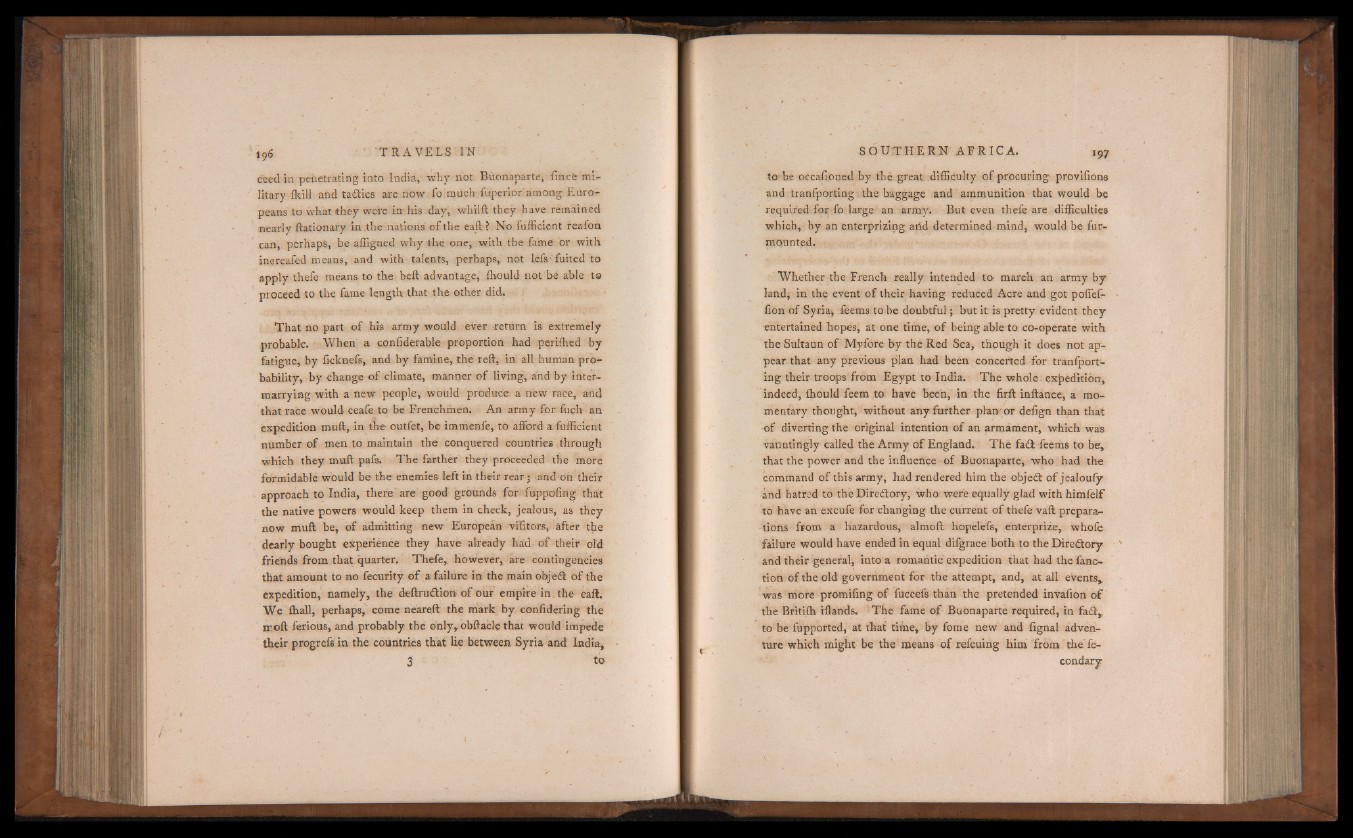
ceed in penetrating into India, why not Buonaparte* fincfe military
ikill and tadtics are now fo much fuperior' among Europeans
to what they were in his day, whrlft they have remained
nearly ftationary in the nations of the eaft ? No fufficient reafon
can, perhaps, be affigned why the one, with the fame or with
inereafed means, and with talents, perhaps, not lefs-fuited to
apply thefe means to the belt advantage, flvould not be able to
proceed to the fame length that the other did.
That no part of his army would ever return is extremely
probable. When a confiderable proportion had periihed by
fatigue, by ficknefs, and by famine, the reft, in all human probability,
by change of climate, manner of living, and by intermarrying
with a new people, would produce a new race, and
that race would ceafe to be Frenchmen. An army for fuch an
expedition muft, in the outfet, be itnmenfe, to afford a fufficient
number of men to maintain the conquered countries through
which they muft pafs. The farther they proceeded the more
formidable would be the enemies left in their rear; -and on their
approach to India, there are good grounds for fuppofing that
the native powers would keep them in check, jealous, as they
now muft be, of admitting new European vilitors, after the
dearly bought experience they have already had of their old
friends from that quarter. Thefe, however, are contingencies
that amount to no fecurity of a failure in the main objed of the
expedition, namely, the deftrudion- of our empire in the eaft.
We ffiall, perhaps, come neareft the mark by confidering the
ir.oft ferious, and probably the only, obftacle that would impede
their progrefs in the countries that lie between Syria and India,
3 to
to be occasioned by thé great difficulty of procuring provifions
and tranfportlng the baggage and ammunition that would be
required for fo large an army; But even thefe are difficulties
which, by an enterprizing arid determined mind, would be fur-
mounted.
Whether the French really intended to march an army by
land, in the event of their haying reduced Acre and got poffef-
fion of Syria* feems to be doubtful ; but it is pretty evident they
entertained hopes, at one time, of being able to co-operate with
the Sultaun of Myfore by the Red Sea, though it does not appear
that any previous plan had been concerted for tranfport-
ing their troops from Egypt to India. The whole expedition,
indeed, ffiould feem to have been, in the firft inftance, a momentary
thought, without any further plan' or defign than that
of diverting the original intention of an armament, which was
vauntingly called the Army of England. The fa£t feems to be,
that the power and the influence of Buonaparte, who had the
command of this army, had rendered him the objeâ of jealoufy
and hatred to the Direâory, who were equally glad with himfelf
to have an excufe for changing the current of thefe vaft preparations
from a hazardous, almoft hopelefs, enterprize, whole
failure would have ended in equal dilgrace both to the Direâory
and their general, into a romantic expedition that had the fanc-
tion of the old government for the attempt, and, at all events,
was more promifing of fuccefs than the pretended invafion of
the Britifh iflands. The fame of Buonaparte required, in fait,
to be fupported, at that time, by fome new and fignal adventure
which might be the means of refcuing him from the fecondary